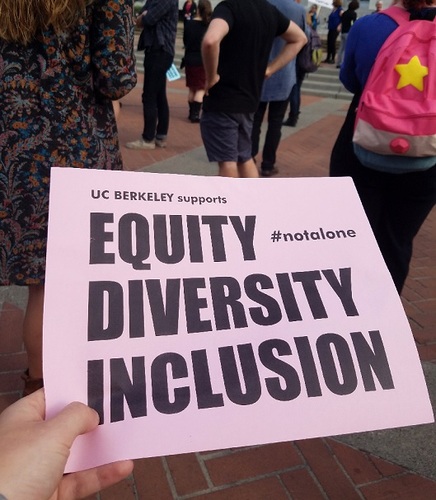
(function(d, s, id) { var js, fjs = d.getElementsByTagName(s)[0]; if (d.getElementById(id)) return; js = d.createElement(s); js.id = id; js.src = “https://connect.facebook.net/en_US/sdk.js#xfbml=1&version=v3.0”; fjs.parentNode.insertBefore(js, fjs); }(document, ‘script’, ‘facebook-jssdk’)); –>
–>
January 4, 2024
Harvard President Claudine Gay’s recent testimony before the U.S. Congress and subsequent exposure of her academic history have revealed much about the true nature and purpose of the Diversity, Equity, and Inclusion (DEI) ideology.
‘); googletag.cmd.push(function () { googletag.display(‘div-gpt-ad-1609268089992-0’); }); document.write(”); googletag.cmd.push(function() { googletag.pubads().addEventListener(‘slotRenderEnded’, function(event) { if (event.slot.getSlotElementId() == “div-hre-Americanthinker—New-3028”) { googletag.display(“div-hre-Americanthinker—New-3028”); } }); }); }
The most significant “A-ha!” moment from le affair Gay is that DEI only “works” in noncompetitive environments such as government and academia. The principles of “diversity” and “equity” implicitly assume that entities and organizations will continue along their current trajectory regardless of who’s in charge. DEI discounts merit, ability, and leadership and assumes as a matter of ideological gospel that “diversity” will more than make up for their loss.
And although this might be true in glacial bureaucracies at Harvard University, the U.S. Department of Education, or Los Angeles City Hall where funding rolls in at the start of every fiscal year and there is virtually no accountability for poor performance, DEI cannot survive in competitive environments where outcomes truly matter.
Harvard is the paradigm example. The university will continue to exist despite Ms. Gay’s shortcomings, as it has for centuries. Eager students from around the world will line up for a chance at a place in the incoming class. Tuition and grants will continue to pour into the university’s coffers. Because of its secure position in academia and absence of any real competitive threats, Harvard has the luxury of making the conscious decision to place a person in a leadership position who, on the available evidence, is unqualified and incapable of effective leadership.
‘); googletag.cmd.push(function () { googletag.display(‘div-gpt-ad-1609270365559-0’); }); document.write(”); googletag.cmd.push(function() { googletag.pubads().addEventListener(‘slotRenderEnded’, function(event) { if (event.slot.getSlotElementId() == “div-hre-Americanthinker—New-3035”) { googletag.display(“div-hre-Americanthinker—New-3035”); } }); }); }
Truth be told, nobody cares whether Gay can lead a university or the quality of her academic work, because she has not one speck of impact on Americans’ day-to-day lives. From her perch at Harvard University, Gay is free to theorize about social injustice and systemic racism and her supporters can quibble about the precise definition of “plagiarism” without impacting the price of gasoline, milk, or mortgage rates. She is someone who exists only on TV in a different world from all but a very, very select few Americans.
And if Gay and her ideas existed only in the Harvard faculty lounge, none of this would be a problem.
But DEI doesn’t exist only at Harvard. DEI is being implemented as an official policy in schools, government, and even the military.
 Regarding the military specifically, it should give everyone pause to know that somewhere out there a Claudine Gay is currently commanding an Air Force squadron, an Army regiment, or a Navy ship. The exact same DEI principles that moved Claudine Gay to the top of the heap at Harvard are moving someone just like her through the ranks into a front-line command position.
Regarding the military specifically, it should give everyone pause to know that somewhere out there a Claudine Gay is currently commanding an Air Force squadron, an Army regiment, or a Navy ship. The exact same DEI principles that moved Claudine Gay to the top of the heap at Harvard are moving someone just like her through the ranks into a front-line command position.
But unlike Gay’s pedagogical pursuits where nothing is truly lost and little is put at risk, military commanders exist in the most competitive environment imaginable, where results absolutely do matter. Competence, ability, and moral courage are essential characteristics for military leaders at all levels, and they matter absolutely, both to the security of our nation and to the men and women entrusted to the leaders’ command. Gay exhibited none of these qualities.
With this in mind, it is important to remember the dissembling woman with the thick frames and condescending glare was the leader and product of an organization completely committed to “diversity.” Harvard University, widely considered to be the zenith of American academia and home to some of the world’s most promising minds, has completely adopted DEI’s principles and implements them among students and faculty with a zeal that would have made Oliver Cromwell proud. The university boasts a $50 billion endowment and employs nearly as many administrators as students. If there was ever a place where “diversity” could display its proof of concept, Harvard is it.
‘); googletag.cmd.push(function () { googletag.display(‘div-gpt-ad-1609268078422-0’); }); document.write(”); googletag.cmd.push(function() { googletag.pubads().addEventListener(‘slotRenderEnded’, function(event) { if (event.slot.getSlotElementId() == “div-hre-Americanthinker—New-3027”) { googletag.display(“div-hre-Americanthinker—New-3027”); } }); }); } if (publir_show_ads) { document.write(“
Gay embodies what DEI purports to be in its most elevated form — a minority woman ascending the heights of academia at one of this country’s most storied institutions.
Gay is apparently the best result of America’s best DEI program.
Excepting of course, that it is now widely reported that she is a plagiarist. Gay’s doctoral dissertation is alleged to not be the product of her own work or research but was instead stolen from others. If true, this means Harvard University’s president and shining exemplar of DEI is an intellectual thief. And if she passed off someone else’s work as her own to gain her position at Harvard, she is not only a thief but a liar.
And yet for the “diversity” tub-thumpers, none of this matters. The resulting defense of Gay and the dissembling over the precise meaning of “plagiarism” has shown that academic credentials, even for a university president, are of only supplemental importance. The revealed truth of DEI is that what Ms. Gay represents is an order of magnitude more important than what she actually is. Whether she is qualified and can do the job for which she was selected is merely ancillary to her having it. This, of course, can only work for people such as Gay who exist in an environment free from consequence.
Gay’s supporters would push back and say that the backlash shows who the racists really are. But what happens when Admiral Claudine Gay, selected for command because of what she represents instead of who she is, faces a competitive (read: combat) situation with the enemy for which she is unqualified and ill-prepared? What happens when a person such as Gay, selected for a position by virtue of her sexual orientation or ethnicity, without any consideration of consequence, encounters a situation where the consequences are measured in American lives?
Who will DEI’s supporters accuse of being the racists then?
Image: Quinn Dombrowski
<!–
–>
<!– if(page_width_onload <= 479) { document.write("
“); googletag.cmd.push(function() { googletag.display(‘div-gpt-ad-1345489840937-4’); }); } –> If you experience technical problems, please write to [email protected]
FOLLOW US ON
<!–
–>
<!– _qoptions={ qacct:”p-9bKF-NgTuSFM6″ }; ![]() –> <!—-> <!– var addthis_share = { email_template: “new_template” } –>
–> <!—-> <!– var addthis_share = { email_template: “new_template” } –>





